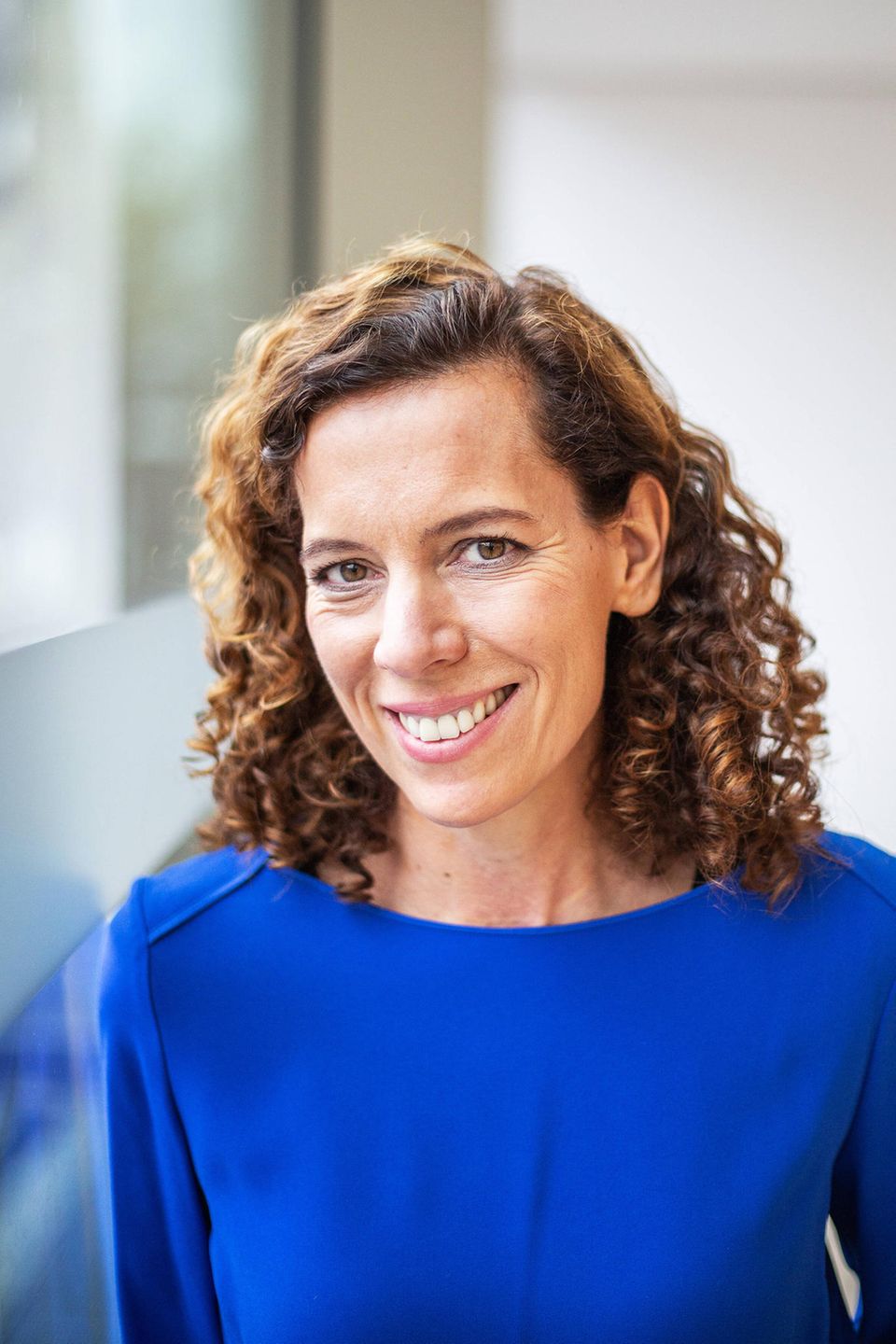What would we have liked to have known at the beginning of our working life? Mirijam Trunk asked successful women about their experiences. Her advice opens doors that you often only see at second glance.
I was in my first year on the job and objectively everything was going well. I had completed my studies, internships and journalism school. Now I started with a colleague – the same age, almost the same education – as a trainee in a publishing house. We should steer a project together. I soon noticed how different our tasks were: he was responsible for IT projects, my area was thank-you packages for the participants in the project group. He was praised as a young manager, I was mistaken for the intern. He complained and was praised for his directness. I complained and was told that it was a sign of selfishness to turn down tasks that made others happy. I ended up being transferred to another department, he ended his time harmoniously.
We don’t all have the same opportunities in professional life.
Today I smile when I think about that first year on the job. And yet it got a ball rolling for me. Because my belief that there is a direct correlation between performance and professional success was replaced by the simple truth: We do not all have the same opportunities in professional life. It makes a difference what gender we are, what we look like, where we come from, what network we start with.
When we talk about diversity at work, we often focus on gender – also because that is the easiest to grasp. And when we talk about the unequal career paths of men and women, we quickly come to talk about the unequal distribution of care work. But diversity and inclusion mean much more than that. Factors such as social and ethnic origin also have a strong influence on careers. For example, if we create a culture that elevates white women but still disadvantages black women, we haven’t improved anything. The doors are only open when everyone can go through.
For a book, I was looking for ideas on how we can achieve this. I spoke to 15 women from business and politics, from medium-sized companies and the start-up scene. What barriers did they encounter? How did you overcome them? Here are three insights that particularly struck me:
Tupoka Ogette: “Talk About What’s Holding You Back”
© K. Schulz/FutureImage / imago images
I meet Tupoka Ogette digitally, she just about squeezed me into her busy schedule. Tupoka Ogette knows what she is talking about when she talks about hurdles and structural inequality of opportunity, education and anti-racism. Also because she has been a professional bridge builder for many years, her book “Exit Racism” is a bestseller, in it she gives instructions on how to deal with racism personally and socially. Her language and way of expressing herself is on point. She manages to explain things calmly, even though the change is only taking place in small steps.
Tupoka Ogette grew up with her mother in Leipzig. When she was eight, the two left for West Berlin shortly before the fall of the Wall. At first she found no words for the experiences of racism that she had throughout her life as a black person in a mostly white environment – prejudices, racist language, degrading messages and exclusion. “Even those around me had no words for what I experienced,” she recalls. “Nobody was able to classify it conceptually. And what cannot be named is also not real and certainly not verifiable. For a long time I thought I was oversensitive, that I would take things too much to heart.”
It’s not you
She didn’t learn to name her experiences until she was in her mid-20s: “When I started talking to other black people about reading resistance literature, I realized: That’s not my problem at all, and I’m not the problem either. The problem is called Racism.”
Today, as a trainer and speaker, Ogette helps people to find a language for and about experiences of discrimination. For them, this also includes giving seemingly negative terms positive connotations. “Uncertainty” is such a word. It represents the fear of doing something wrong. Ogette sees it differently: “Social change only works with uncertainty,” she is convinced. “So insecurity means: I’m on the move, and society is on the move. So it’s a good sign! Insecurities are totally okay!”
Miriam Wohlfarth: “Dare yourself, jump into the unknown!”

© Jakob Hoff / imago images
Women are still less likely than men to say yes to risky job changes. Why is that? Our willingness to jump in at the deep end often depends on whether there are role models who show us: dare, it will work! But there are still far too few women as role models – in contrast to male role models. Thankfully, that’s slowly changing.
The entrepreneur Miriam Wohlfarth, 53, is such a role model for me. In 1999 she gave up her job at the travel company Hapag-Lloyd and switched to an industry that was completely unfamiliar to her: in 2009 she founded her own start-up – Ratepay, which enables online payments to be made in installments. In the fintech scene, which was still young at the time, she was one of the first women. Above all, she dared to do something that is still rarely the case in Germany: she changed industries, jumped into the unknown.
Just try something new
In the meantime, Miriam Wohlfarth has handed over her CEO position at Ratepay – to an all-female management team, another special step, because at least in the fintech industry there are hardly any all-female management teams – and founded a new start-up with Banxware, which offers digital loans gives to entrepreneurs. She is also a member of various supervisory boards.
How did she find the courage to dare something completely new? I asked her when we met digitally for the interview. Character and family are an important basis in Miriam Wohlfarth’s experience, but also the knowledge that you don’t have to be able to do everything yourself to be successful. “I also have a tech company, we do artificial intelligence, and I’m not a techie myself. Women often think: I have to be able to do everything, and that’s not the case. If you want to co-found a tech company, you can you put together a team that has the skills.” Only 1.8 percent of the capital goes to women who start up a company – this also has to do with the fact that women are less likely to dare to tackle technical topics for fear of not having enough knowledge. Miriam Wohlfarth’s experience that it’s worth taking the leap into the unknown and that you just collect the things you can’t do gives a lot of encouragement.
Sigrid Nikutta: “Go into the conflict!”

© Thomas Imo/Photothek / Getty Images
Stereotypes and role models that we grow up with influence us enormously. This becomes more and more clear to me in my conversations. Girls, for example, learn that they get ahead primarily through cooperation and relationship deals: Let’s get on the podium together. Boys, on the other hand, are usually told that conflict and cooperation are not mutually exclusive: only one person can stand on top, but we can go out for a drink together afterwards. Such a hierarchical communication system, in which it is normal to network upwards and, if necessary, to enter into conflicts, is still common in most companies from a certain management level. So what Sigrid Nikutta gives me on this topic is very important to me.
Just being kind doesn’t get you very far
Nikutta is CEO at DB Cargo, before that she held the same position at Berliner Verkehrsbetriebe. I meet her on the ICE from Berlin to Erfurt. “I think it’s a myth to believe that you can make your career path in a purely friendly curve,” she says. “It depends on assertiveness and a clear position. Just as the other person makes his position clear, I have to be able to do it too. If the other person shouts, I can shout louder.” A sober attitude must therefore be found on the subject of conflict and quarreling. “Conflicts are an instrument for asserting interests. I have often observed how people use their fear of conflict in order to achieve their goals.”
So it makes sense to send yourself on a conflict learning journey. After our conversation, I resolve to test this myself and not immediately resolve situations that are becoming uncomfortable by giving way or by saying something loose. And to say to myself: Conflict is not something to be avoided!
A structural problem
After 15 interviews I now know why it is so important to engage with the things we often take for granted: what words we use, what behavior we consider “normal”, how we make decisions, who we are with surround us. Because the different career paths that we observe for men and women are not accidental. And while diligence and good work are important factors, they’re not even half the battle.
This is where the circle of diversity closes, because many of the hurdles that stand in the way of women are, in a similar and often even stronger form, the reasons that prevent the careers of people with other characteristics of discrimination: unconscious prejudices, language images, missing networks. The fact that management floors and decision-making bodies in Germany are still primarily occupied by white men is not due to individuals, but to structures that determine the probability of whether someone is allowed to have a say or not long before their professional life.
Away with the hurdles!

©PR
Mirijam Trunk, 31, first worked as a reporter for Bayerischer Rundfunk after completing her studies and journalism school. In 2019 she became Managing Director of the Bertelsmann Audio Alliance and built up the podcast business there. Since 2022 she has been in charge of cross-media and sustainability in the management team at RTL Germany. In her book “Things I would have liked to have known at the beginning of my career” she describes the hurdles that young women have to overcome at the beginning of their professional life and shows how this can work (320 pages, 22 euros, Penguin Verlag).
